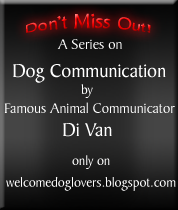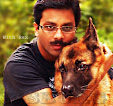Canine Cognitive Dysfunction – CCD or Dementia in Dogs
This is information about canine health that should come to a genuine help to dog owners. Canine Cognitive Dysfunction – CCD or Dementia in dogs are not too frequently talked about, because in most cases the symptoms for this disorder are not correctly identified. So what is Canine? Cognitive Dysfunction – CCD or Dementia in Dogs, very much like Alzheimer's disease in human, is an age-related deterioration of dogs’ cognitive abilities. Associated with the older age, Canine Cognitive Dysfunction – CCD or Dementia in Dogs is characterized by noticeable changes in dogs’ behavior.
Researches have shown that “Amyloid” (a type of protein) gets deposited in the brain of older dogs, which adversely affects certain areas of cognition in the senior dogs – very much similar to humans. Although not all areas cognition and learning types get affected, but minimum effect in the dogs’ brain sometimes result in a lot of change in dogs’ behavior – especially disorientation in a wide range of circumstances.
Canine Cognitive Dysfunction – CCD are also sometimes called Cognitive Dysfunction Syndrome – CDS. A research at the University of California-Davis has established that around 62% of 11- to 16-year-old dogs exhibited symptoms in at least one category of Cognitive Dysfunction Syndrome – CDS.
Symptoms of Cognitive Dysfunction Syndrome – CDS in dogs
Although there are certain specific symptoms of this disorder in senior dogs, yet these symptoms can also be the consequence of certain medical conditions. It is hence important to identify whether this symptoms are genuinely due to CDS or any other medical conditions. An experienced vet is the best person to rule this out. The commonest symptoms of Cognitive Dysfunction Syndrome – CDS or Dementia in senior dogs are as follows:
• Disorientation and confusion
• Restless pacing and wandering around
• Heavy panting mostly during the night
• Sleepless night
• Staring off into space confusedly
• Acting "dazed"
• Getting "stuck" in the corners of enclosed spaces
• Getting lost in known places occasionally
• Going to the wrong side of known exists
• Being non-responsive to his own name
• Being non-responsive to familiar commands
• Acting withdrawn from situations he once used to love to be in.
• Decreased interaction pack members – his own families and other pets if any
• Not remembering house training
• Less or non-enthusiastic about plays that he used to enjoy once
• Usually become lethargic and weak, which results in excess sleep
As a consequence of these problems, the dog usually develops frantic behavioral problems – aggression. Aggression in such condition is due to the fact that he sometimes becomes confused and fails to understand his own ones.
Conventional Treatment of Canine Cognitive Dysfunction includes administering medicines, though not all medicines work well for CDS, but some really do. There are a few holistic treat as well. Up next, the natural treatments for Canine Cognitive Dysfunction. Stay tuned…

























0 comments:
Post a Comment